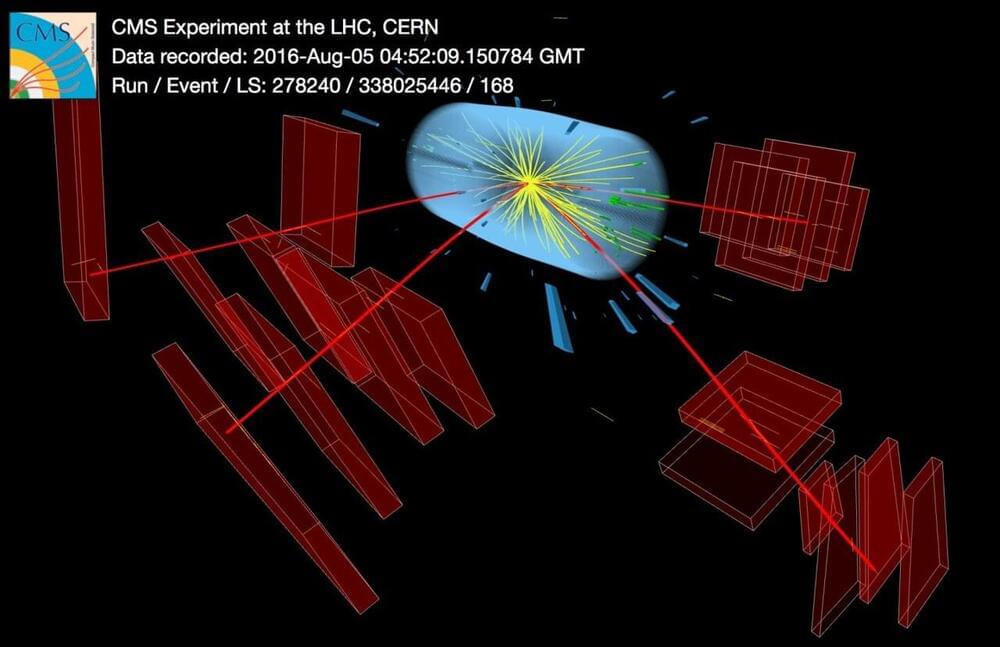The Higgs boson doesn’t stick around for long. Once it is created in particle collisions, the famed particle lives for a mere less than a trillionth of a billionth of a second or, more precisely, 1.6 × 10-22 seconds. According to theory, that is, for so far experiments have only been able to set bounds on the value of the particle’s lifetime or to determine this property with a large uncertainty. Until now. In a new study, the CMS collaboration reports a value for the particle’s lifetime that has a small enough uncertainty to confirm that the Higgs boson does have such a short lifetime.
Measuring the Higgs boson’s lifetime is high on the wish list of particle physicists, because an experimental value of the lifetime would allow them not only to better understand the nature of the particle but also to find out whether or not the value matches the value predicted by the Standard Model of particle physics. A deviation from the prediction could point to new particles or forces not predicted by the Model, including new particles into which the Higgs boson would decay.
But it isn’t easy to measure the Higgs boson’s lifetime. For one, the predicted lifetime is too short to be measured directly. A possible solution entails measuring a related property called the mass width, which is inversely proportional to the lifetime and represents the small range of possible masses around the particle’s nominal mass of 125 GeV. But this isn’t easy either, as the predicted mass width of the Higgs boson is too small to be easily measured by experiments.
